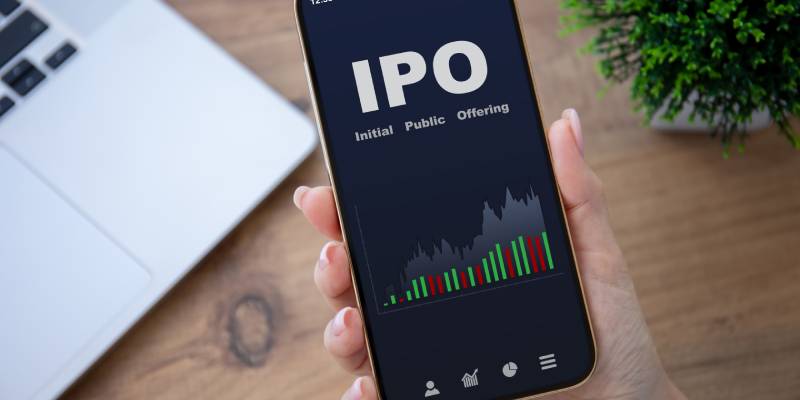If you have been watching the fintech world, you might have noticed a significant change coming. The Blockchain’s Impact on Fintech is not just talk. It is shaking things up. This tech is starting to make things like Security, openness, and quick service more than just goals. They are becoming the norm. With blockchain, we are moving towards a setup where everyone has a fair shot at managing their money, and we are all getting a say. Let us dive into how this switch happens and why it is a big deal for our money.
A Deep Dive into Blockchain’s Role in Fintech
Here is something to think about: the global blockchain fintech market is set to hit a vast USD 31.84 billion by 2029. That is a yearly growth rate of 46.92% from 2024 to 2029. People are buying into the idea that this tech will change how we deal with money.
Looking back, the rise of new finance apps has been fast and massive. In 2021, over 10,000 fintech startups popped up in the U.S., with more than 26,000 worldwide. These apps are bringing new ways to handle payments, giving the old, slow, and costly systems a run for their money.
Blockchain offers more than benefits. It tackles significant issues in the fintech world, including stiff central setups, scams, hidden details, and steep fees. Its secure and unchangeable style means we can bank on it to be reliable and transparent.
How Does Blockchain Tackle Fintech Hurdles?
From my view of the finance industry, a few significant hurdles seem to hold it back. Central systems, which are pretty standard, can leave you feeling out of control over your money. They can also make it hard to approve things, even when you have done everything right. In addition, millions of fintech firms lose to scams yearly, and unclear dealings can ruin trust between banks and customers. High fees for sending money across borders make getting the needed services harder for many folks.
But here is the thing: blockchain could be the answer to these challenges. It is a shared record, letting people take charge of their money. That means more efficient handling and lower costs. Blockchain openness also means you can track every deal, which builds trust. Cutting out the intermediary can reduce those fees, making things more affordable.
Blockchain’s Impact on Fintech is not just theory. Real examples show us how its secure and unchangeable style stands firm against the security issues old financial systems face. This kind of safety is critical for building trust and smoothing out worries about scams and hacks.

Perks of Blending Blockchain into Fintech
Watching the fintech scene, it is clear that incorporating blockchain has made a significant impact. Let us explore the specific perks blockchain brings to the finance sector:
- Better Security: A shared blockchain setup means no single weak spot, making it challenging for cyberattacks and data leaks.
- Privacy: Using tricky coding, we can keep personal stuff safe while being open about financial dealings.
- Programmability: Smart contracts let us set up deals and transactions to run themselves based on set rules, making things smoother and avoiding mistakes by handling everything automatically.
- Sticking to Rules and Being Efficient: Being open and accessible to track helps companies stick to complex finance laws and standards.
These perks are just the start of how blockchain is changing fintech. It is leading to a future where finance services are safer and more in tune with our digital world.
Boosting Security and Privacy with Blockchain
Blockchain ups the safety and privacy of our money moves. Its coding keeps deals open while making sure personal details stay private and anonymous. This mix of being clear yet private is vital in our digital times, where keeping our money moves safe is a big deal. Plus, blockchain shows its worth in scenarios like maintaining secure transactions and protecting identities, proving its practical value in making financial systems more trustworthy.
Smart Contracts Making Fintech Services Run Themselves
Smart contracts are a big part of how blockchain changes fintech by making things run themselves and cutting out intermediaries. These contracts kick in automatically when certain things happen, making deals go quicker and reducing scams and mistakes. In fintech, smart contracts are used for things like settling trades and automatically checking rules, which increases efficiency and safety.
How intelligent contracts blend into fintech significantly shifts how we think about and carry out financial agreements. As blockchain grows, the finance scene will become more efficient, transparent, and open to everyone. With contracts that can run any time and from anywhere, blockchain is making fintech services more reliable, ready to meet the needs of a growing global crowd with different wants.
Scaling Up and Being Available in Fintech
Blockchain plays a significant role in making financial services more accessible and scaleable. The way blockchain handles more and more transactions smoothly is unique. This scalability ensures that as more people use blockchain fintech solutions, the system stays solid and quick, supporting the sector’s growth without losing its edge.
Blockchain also lets fintech companies go beyond borders, working globally with an ease we haven’t seen before. This broad reach changes the game for fintech firms, allowing them to tap into new markets and serve a wide range of customers from different places. This is a significant change from the old, local ways of financial institutions, and It is leading us to a finance world that is more open and easy to get into.
The implications of blockchains’ broader impact on financial services are vast and varied. They point to a new era of money handling that is safer, clearer, and friendlier to users.
Blockchain’s Big Changes to Financial Services
Blockchain has made a bunch of groundbreaking contributions to the industry:
- Changing Peer-to-Peer (P2P) Payments: Old banking systems can’t keep up with blockchains’ fast transactions.
- Shaking Up Trading and Trade Finance: Making settlement processes automatic and cutting fees opens new ways to make money.
- Making Regulatory Compliance Easier: Blockchain’s transparent and trackable nature helps stick to complex rules, giving us a solid record of transactions that is easy to check.
Blockchain’s potential goes beyond these areas as it continues to find new ways to cut costs and make financial services easier to access worldwide.
Read More: Redesigning Trade and Trade Finance Using Blockchain To Boost Revenue
Changing Peer-to-Peer Payments with Blockchain
The progress in P2P payments with blockchain is groundbreaking. It has made it simpler for people to send money straight to each other without needing anyone in the middle. This has made deals not only easier but also safer and cheaper.
The payments and remittances field has taken to blockchain’s promise. The tech’s knack for getting past red tape shows how well it works. By speeding up the payment process, blockchain has cut down the time it takes for money to get where it is going, even across countries. This is a big step from traditional banking, which can be slow and expensive because of all the intermediaries involved.
Blockchain in Digital Identity and Sticking to Rules
In our digital age, having a safe digital identity system in finance is super important. With its strong Security, Blockchain is changing this part of finance by giving us a solid place to keep and check identity data without the risk of changes or hacks. This level of safety is crucial in finance, where identity theft can be harmful.
Blockchain also makes sticking to rules simpler by offering a solid record of deals, which is vital for keeping track of things and being able to check data. Financial groups can use blockchain to make reporting smoother and ensure they follow the rules, which is getting more important as the rules get more complex.
As we look at what blockchain can do, it is clear that its potential goes way beyond just making things safer and easier to follow. The tech leads the way for creative solutions that promise to keep transforming the finance world.
Setting a New Direction in Finance- Welcoming Blockchains Ideas
Thinking back on our journey through blockchains’ impact on fintech, it feels like we are at the start of a significant change in financial services. Blockchain is doing more than just adding to old ways. It is completely redoing the systems that have been at the heart of our deals for so long. Stepping into this new world might seem harsh, but it is a move that is set to reshape what we mean by inclusivity, safety, and how we get things done.
Whether it is financial fraud or illegal practices, Trade Finance Advice provides expert advice. Visit https://www.tradefinanceadvice.com/ to learn expert advice on issues faced by trade finance organizations.



